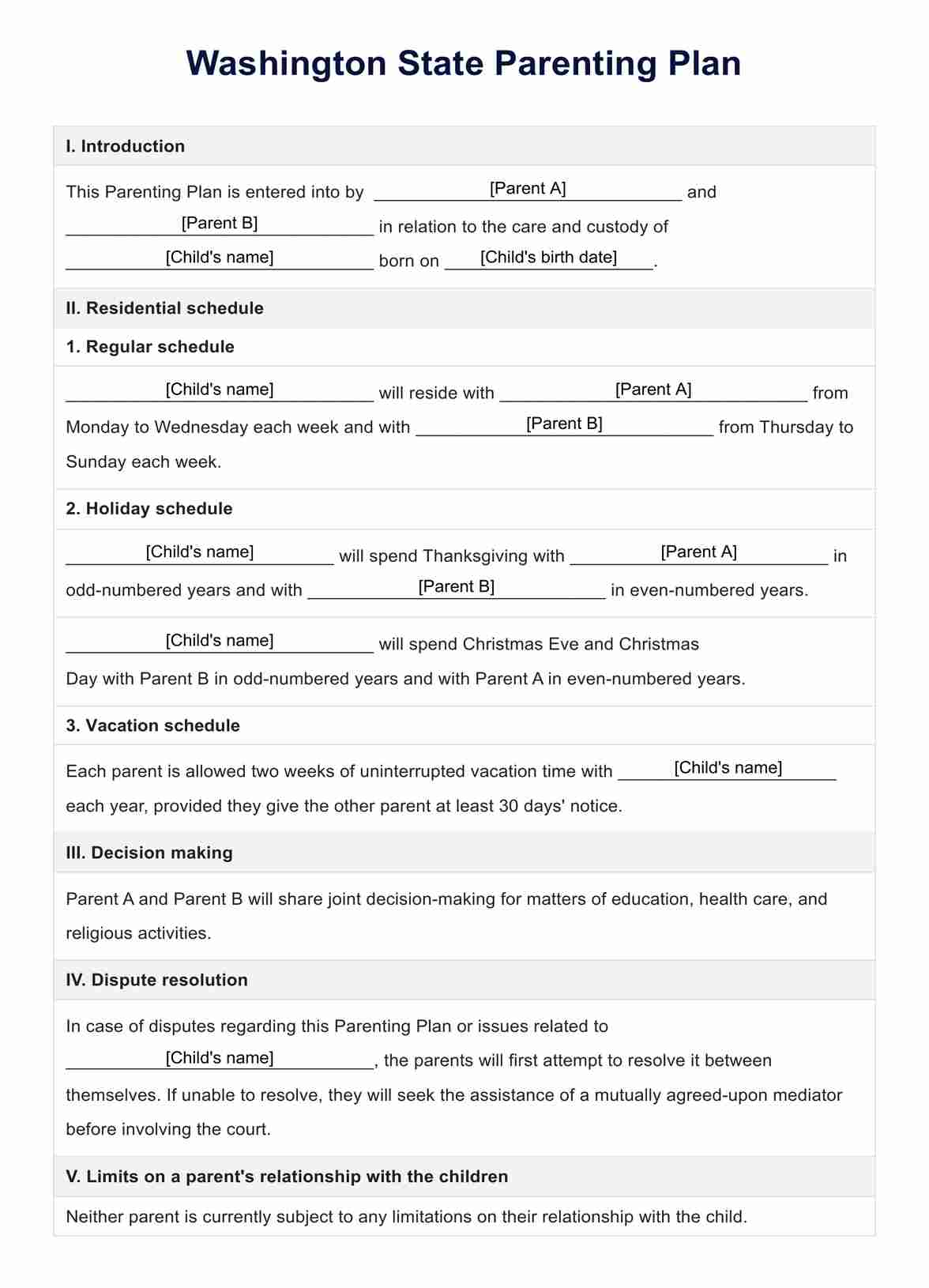Parenting is one of the most rewarding yet challenging journeys of life. Whether you're a first-time parent or a seasoned mom or dad, having a solid parenting plan can make all the difference in creating a harmonious home environment. In this comprehensive guide, we’ll explore practical strategies and expert advice to help you design a parenting plan that works for your family. With insights inspired by HomeandMommyBlog, we’ll cover everything from setting boundaries to fostering emotional connections.
In today's fast-paced world, parenting has evolved beyond traditional methods. Modern families need adaptable and effective parenting plans that cater to the unique needs of each child. This guide will provide you with actionable tips and resources to navigate the complexities of modern parenting while ensuring your home remains a loving and supportive space.
By understanding the importance of structured parenting plans, you can build a strong foundation for your family's future. Let’s dive into the key elements of creating a parenting plan that aligns with your values and enhances your family’s well-being.
Read also:Why Henry Cavill Could Be The Perfect James Bond A Closer Look
Why Parenting Plans Are Essential for Modern Families
Parenting plans serve as a roadmap for raising children in a consistent and nurturing environment. They help parents set clear expectations, establish routines, and address potential challenges proactively. According to a study by the American Psychological Association, structured parenting practices significantly improve child behavior and family dynamics.
With the rise of dual-income households and busy lifestyles, having a parenting plan becomes even more critical. It ensures that both parents are on the same page and provides children with a sense of security and stability. HomeandMommyBlog emphasizes the importance of tailoring these plans to fit the specific needs of your family, whether you're dealing with toddlers or teenagers.
Key Components of an Effective Parenting Plan
An effective parenting plan should cover several essential areas to ensure comprehensive support for your children. Below are the key components to consider:
- Establishing consistent daily routines
- Setting age-appropriate rules and boundaries
- Encouraging open communication
- Fostering emotional intelligence
- Addressing discipline strategies
Each component plays a vital role in shaping your child's development and strengthening family bonds. For instance, consistent routines help children feel secure, while open communication builds trust and understanding.
Creating a Structured Routine for Your Family
Structured routines are a cornerstone of effective parenting plans. They provide children with a predictable schedule, which reduces anxiety and promotes independence. Here are some tips for creating a structured routine:
Step 1: Define Daily Priorities
Start by identifying the most important activities in your family's day, such as meal times, homework, and bedtime. Allocate specific time slots for each activity to ensure a balanced schedule.
Read also:Understanding Amex Cvv Code A Comprehensive Guide For Secure Transactions
Step 2: Involve Your Children
Encourage your children to participate in creating the routine. This involvement fosters a sense of ownership and responsibility. For example, you can ask them to choose between two options for their evening activity.
Step 3: Be Flexible
While consistency is key, it's also important to remain flexible. Life is unpredictable, and sometimes adjustments need to be made. HomeandMommyBlog advises parents to regularly review and update their routines to accommodate changing circumstances.
Setting Boundaries and Rules
Setting clear boundaries and rules is crucial for maintaining order and teaching children responsibility. Here are some guidelines for establishing effective rules:
- Keep rules simple and age-appropriate
- Clearly communicate the consequences of breaking rules
- Consistently enforce rules to reinforce their importance
Research from the National Institute of Child Health and Human Development highlights that children thrive in environments where rules are clearly defined and consistently enforced. This approach not only promotes discipline but also helps children understand the importance of respect and responsibility.
Encouraging Open Communication
Open communication is the foundation of strong family relationships. By fostering an environment where children feel comfortable expressing their thoughts and feelings, parents can better understand their needs and address any concerns.
Tips for Encouraging Open Communication
- Practice active listening by giving your full attention when your child speaks
- Validate their feelings and show empathy
- Create regular opportunities for family discussions, such as during meals or family meetings
HomeandMommyBlog suggests setting aside dedicated time each week for family check-ins. These sessions can help strengthen bonds and ensure everyone's voice is heard.
Fostering Emotional Intelligence
Emotional intelligence is a critical skill that enables children to manage their emotions and empathize with others. Parents play a pivotal role in nurturing this skill through their parenting plan. Here’s how you can foster emotional intelligence:
Teach Emotional Awareness
Help your children identify and label their emotions. This awareness is the first step toward managing them effectively. Use books, games, and real-life situations to teach emotional vocabulary.
Model Healthy Emotional Responses
Children learn by example. Demonstrate healthy ways to handle stress, frustration, and disappointment. This modeling helps them develop positive coping mechanisms.
Addressing Discipline Strategies
Discipline is an essential aspect of parenting plans. It involves teaching children appropriate behavior and helping them learn from their mistakes. Here are some effective discipline strategies:
- Use positive reinforcement to encourage good behavior
- Implement natural consequences for misbehavior
- Stay calm and consistent when addressing discipline issues
Studies show that positive discipline techniques are more effective than punitive measures in promoting long-term behavioral change. HomeandMommyBlog advocates for a balanced approach that combines firmness with kindness.
Adapting Parenting Plans for Different Age Groups
Parenting plans should evolve as your children grow and develop. Here’s how you can adapt your plan for different age groups:
Infants and Toddlers
Focus on establishing basic routines and providing a nurturing environment. Prioritize safety and consistency to build trust with your little ones.
School-Age Children
Incorporate educational activities and encourage independence. Set expectations for homework and chores while maintaining open lines of communication.
Teenagers
Shift towards collaborative decision-making and mutual respect. Discuss boundaries and responsibilities, allowing your teens to have a say in shaping the family rules.
Overcoming Common Parenting Challenges
Every family faces unique challenges, but having a well-thought-out parenting plan can help navigate them more effectively. Some common challenges include sibling rivalry, screen time management, and balancing work-life responsibilities. Here’s how you can tackle these issues:
Sibling Rivalry
Encourage teamwork and cooperation among siblings. Teach conflict resolution skills and celebrate each child's individual strengths.
Screen Time Management
Set clear limits on screen time and encourage alternative activities, such as reading or outdoor play. Use technology as a tool rather than a babysitter.
Work-Life Balance
Prioritize quality time with your family and set boundaries for work-related tasks. Delegate responsibilities and seek support when needed.
Resources for Developing Your Parenting Plan
There are numerous resources available to help you develop a comprehensive parenting plan. Consider exploring the following:
- Books and articles from reputable parenting experts
- Online communities and forums for sharing experiences and advice
- Workshops and seminars focused on modern parenting strategies
HomeandMommyBlog is an excellent resource for practical tips and real-life examples. Their content is grounded in research and informed by the experiences of fellow parents.
Conclusion
Creating a parenting plan is an investment in your family's future. By incorporating structured routines, clear boundaries, open communication, and emotional intelligence into your plan, you can build a harmonious and supportive home environment. Remember, flexibility and adaptability are key as your children grow and develop.
We invite you to share your thoughts and experiences in the comments below. Your input can inspire and assist other parents on their journey. Don’t forget to explore more articles on HomeandMommyBlog for additional insights and strategies to enhance your parenting plan.
Table of Contents
- Why Parenting Plans Are Essential for Modern Families
- Key Components of an Effective Parenting Plan
- Creating a Structured Routine for Your Family
- Setting Boundaries and Rules
- Encouraging Open Communication
- Fostering Emotional Intelligence
- Addressing Discipline Strategies
- Adapting Parenting Plans for Different Age Groups
- Overcoming Common Parenting Challenges
- Resources for Developing Your Parenting Plan

